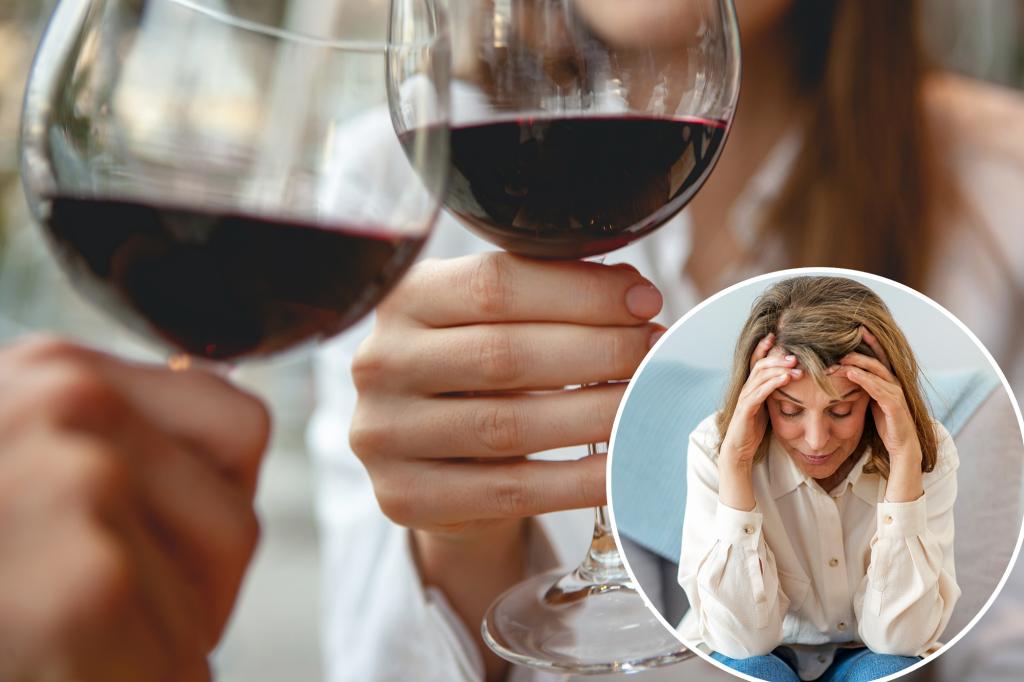Summarize this content to 2000 words in 6 paragraphs
The grape debate has been settled.
Two scientists at the University of California, Davis, believe they discovered why Cabernets, Pinot Noirs and other types of red wine cause such brutal hangovers.
Andrew Waterhouse, an enology professor, and Apramita Devi, a postdoctoral researcher in food science and technology, told The Conversation that red wines contain a lot of quercetin, which is affecting the body’s ability to process alcohol properly.
Quercetin is a phenolic compound found in the skins of grapes. There’s more Quercetin in red wine than white wine because red grape skins are left in longer during the fermentation process.
Waterhouse and Devi measured how quercetin slows down the process of the enzyme ALDH breaking down acetaldehyde, which is produced in the human body when breaking down alcohol.
The tests confirmed that quercetin was a strong inhibitor in the process.
Quercetin glucuronide, according to the study, disrupts the body’s metabolism of alcohol and creates extra acetaldehyde circulates — which causes inflammation and headaches.
Waterhouse and Devi noted that extra acetaldehyde circulates cause people to get red, flushed skin which is accompanied by a headache. The headache is as a result of a lagging metabolic step as the body breaks down the alcohol.
The study also addressed whether sulfites, biogenic amines and tannins are among the causes of red wine hangovers.
Sulfites are frequently found in all types of wines and have long been blamed as the reason for hangovers from alcohol.
But according to Waterhouse and Devi, the amount of milligrams of sulfites in wine — 20 milligrams in a single glass — are unlikely to be enough to overwhelm the body’s sulfite oxidases.
Biogenic amines are nitrogenous substances that are similarly found in many fermented foods and drinks.
However, the scientists said there’s too few of an amount of biogenic amines in wine is far too low to cause brutal hangovers.
Lastly, tannin is in high amount in red wines, which leads many hungover people to blame the chemical compounds.
But as Waterhouse and Devi noted, there are many other phenolic compounds in grapes’ skins and seeds — like quercetin — that are causing the hangovers.
Plus, tannin is in other products like tea and chocolate, which rarely cause headaches.
In conclusion, Waterhouse and Devi said that grapes exposed to the sun produce more quercetin, which in turn is leading those types of red wine to cause greater hangovers.
So, inexpensive wines may be the greatest solution for red wine drinkers wanting to avoid a hangover.


